A round table on the development of the domestic satellite constellation was held in the Federation Council
On Wednesday, Deputy Director General of Roscosmos Alexander Bloshchenko provided clarity on the federal space project «Sfera», which many compare either to the European OneWeb constellation or to Elon Musk's StarLink. He spoke in the Federation Council as part of a round table: «Development of a satellite constellation in order to eliminate digital inequality in the Russian Federation.»
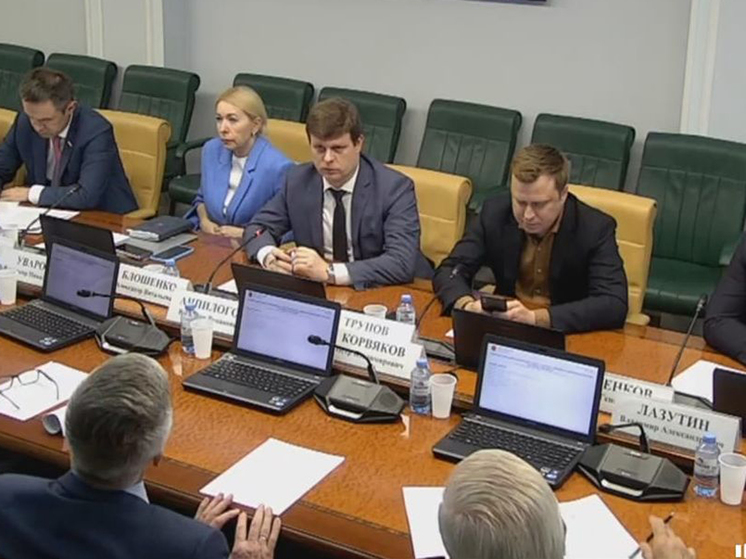 Photo: council.gov.ru
Photo: council.gov.ru
As we recall, during his Address to the Federal Assembly on February 29, 2024, President Vladimir Putin instructed the government to develop a national project «Data Economy and Digital Transformation of the State», envisaging the possibility of providing high-quality high-speed access to the Internet by 2030 to at least 97 percent of households. According to Putin, he demanded the allocation of at least 116 billion rubles to implement this order.
Everyone knows that a significant part of Russia is located in high latitudes, where the population density is low, and the taiga and permafrost zone prevents the laying of fiber-optic communications. In such places, satellites should help provide a full range of telecommunications services.
As you know, the country has launched a federal project to create the Sphere satellite constellation since 2017.
“Somehow it turned out that everyone imagines this project in their own way,” said Roscosmos Deputy General Director Alexander Bloshenko, who was present at the round table. — There is a need to clarify, otherwise “Sphere” has recently been compared either with OneWeb or with StarLink. In fact, the federal project is not one group; it includes 10 groups (five for remote sensing of the Earth (ERS) and five for communications). The key idea of the program is import independence. We, as an industry, were the first to experience both unfair competition (from Western partners) and restrictive measures. But every cloud has a silver lining — but we were the first to adapt to it. GLONASS devices, which are now in great demand both in the North Military District and for civilian purposes, have already been completely imported.”
According to Bloshenko, import substitution was not easy for our specialists — “it was hard, painful” when they focused on supplies of instruments, for example, from Airbus, but they suddenly stopped. “We understand the opportunity of Asian partners and are aware of the subtleties of politics with these countries.”
Returning to the Sphere, the deputy head of the space department emphasized that it is being created with a focus on a unified range of instruments: so that both service systems and payloads can be used between different types of devices. This reduces the cost of mass production and allows you to intelligently distribute the load on suppliers.
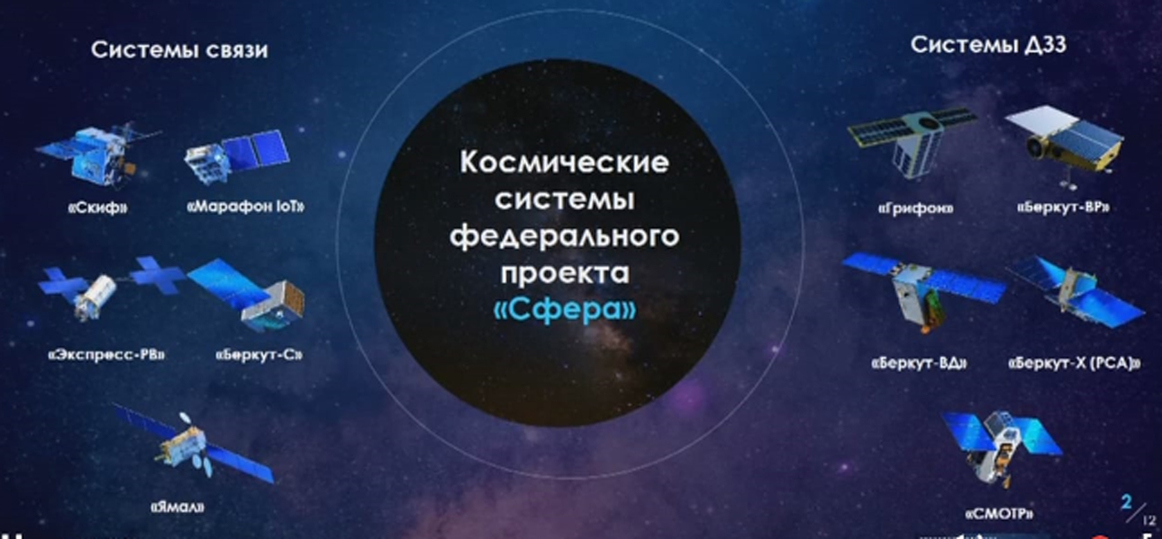 Photo: council.gov.ru
Photo: council.gov.ru
So, according to Bloshenko, now there is an understanding that the Russian » Sphere» will consist of:
— Skif systems (the first test satellite was launched in October 2022). Its 12 devices, which will operate in medium-high orbit, will provide broadband Internet access. In some respects, the medium-high orbit (8070 km) is a compromise between the geostationary orbit (in terms of broadband access) and the low-orbit constellation, which (by analogy with StarLink) is being created by one of the private Russian companies. “The subtlety here is in ballistics: the higher the orbit, the fewer devices can cover the territory, but the devices become more expensive and more powerful,” said Bloshenko.
— Express RV groupings — 4 vehicles located in a highly elliptical orbit. According to a Roscosmos representative, it is specially designed for the North, where geostationary satellites operating in the equatorial plane do not reach.
— The “New Messenger” group, which, unlike the old system of the same name, will be supplemented with a personal voice communication function.
— The Marathon grouping, consisting of 264 devices for the Internet of Things. “Ideologically, we did not start making “harvesters” with different functionality,” explained Bloshenko. “We have brought out separately — two this year, two we will bring out next year and then — 132.”
According to the speaker, the people search company “Lisa Alert” has already become interested in the services of this group. They propose to create a satellite “life button” — a wearable sensor weighing 100 grams, which is sewn into a child’s backpack or vest. When going for a walk, it will play the role of a terminal, like an anti-avalanche beeper for communication with the Ministry of Emergency Situations, only through satellites.
— Five groups for remote sensing.
Roscosmos, according to Alexander Vitalievich, undertakes to create mass production of the above-described satellites with guaranteed quality. But the Ministry of Finance again… allocated few funds. “In the federal project, the Ministry of Finance initially set an amount of 95 billion rubles for all 10 groups,” Bloshenko said. — Now the figures for the entire Sphere project are about 150 billion rubles until 2030. This is extremely small. For this money, we provide only half of the “Skif” — 6 devices out of 12, 132 “Marathon” out of 264 and minimal remote sensing groups. We need to multiply budget funding.»
According to Ruslan Khairullin, director of the department for implementation of infrastructure projects of the Ministry of Digital Development, 80 percent of the territory of our country can be covered with the Internet only with the help of satellites.
Russia provides a full range of services, including to clients from 58 countries. However, the Arctic is not fully covered by the geostationary satellites currently in orbit, and experts hope that this will be possible with the new Express RV constellation, the same one that is also part of the Sphere program. “This system is designed to solve the socio-economic development of regions, national security and the provision of commercial communication and broadcasting services, including on mobile objects,” said the director of the department.
Also, according to him, the draft national program “ Data Economy» provides for the replacement of six «Express» geostationary stations currently operating in orbit. The launch of the first three is planned for 2028, the rest — in 2029 and 2030. It is planned to spend 70 billion rubles on all six new Express satellites.
As part of the same project, until 2030, funding is also provided for activities to launch spacecraft in low orbit, which are being created by one of the private Russian companies. “In total, it is planned to launch 383 spacecraft (SV), despite the fact that there will be 282 permanently operating spacecraft,” Khairullin said.










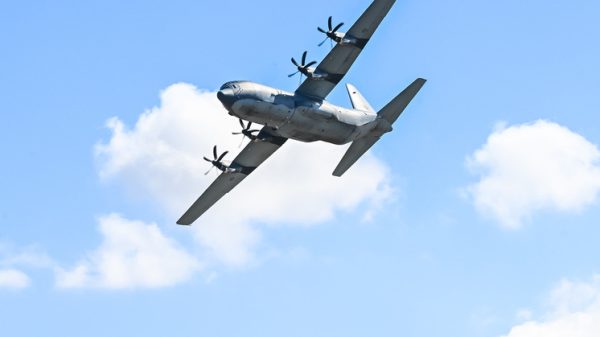








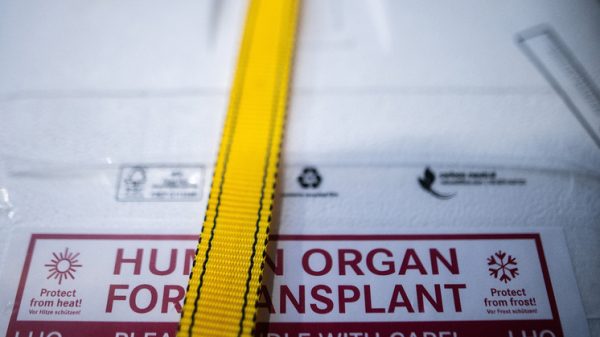














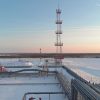



















Свежие комментарии